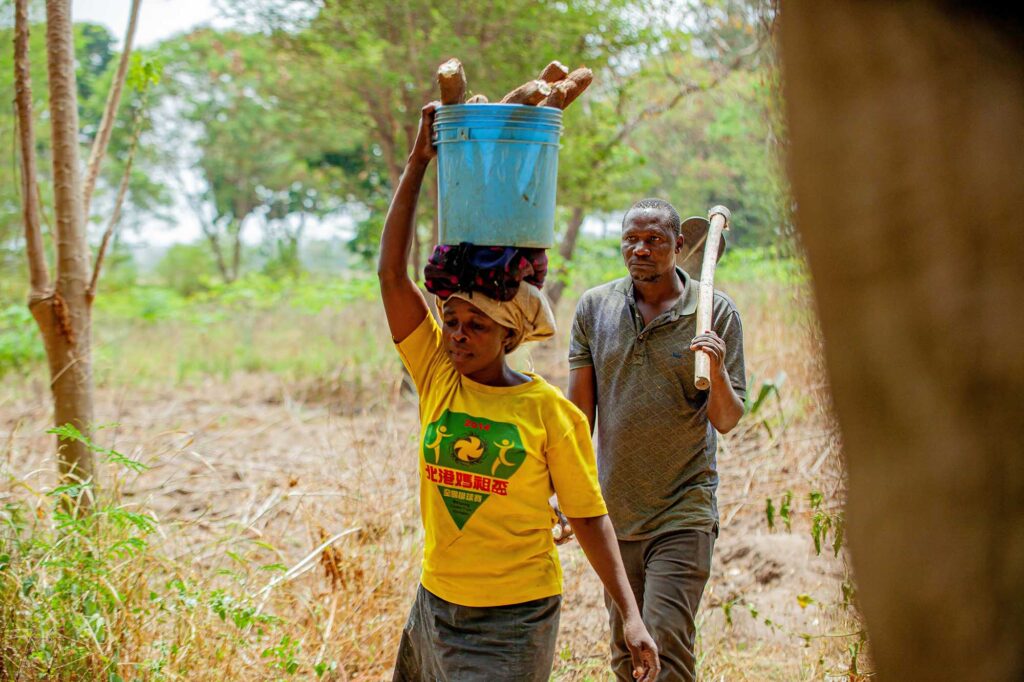A new SIANI expert group, Drylands Agroforestry in East Africa, offers solutions that can improve food security in a region hard hit by climate change. Agroforestry can be a useful approach also in dryland areas and reduce the risks of hunger and land conflicts.
The expert group Drylands Agroforestry in East Africa brings together local communities of farmers and agropastoralists who combine livestock raising with some farming. Both groups find that their traditional way of life is increasingly jeopardised by the impacts of climate change, leading to competing interests and tensions. However, these effects can be mitigated by agroforestry, and the SIANI expert group helps local communities adopt that approach to a dryland region.
We asked the group’s coordinator Dr. Monica Nderitu, Environment and Climate Change Resilience Advisor at Vi Agroforestry, to tell us more.
What is your project about?
This expert group focuses on addressing the challenges faced by rural communities in drylands, offering solutions for sustainable land management to improve food systems. The group aims to foster dialogue and commitments to transform food systems and support biodiversity conservation in East African drylands through agroforestry, with a broader impact on both regional and global sustainable food system discussions.
Who are the members of the expert group?
The group includes 15 representatives from civil society, government, academia, and youth organisations, who collaborates with local farming and agropastoralist groups to share knowledge.
What type of change do you expect to achieve?
In the short term, the project will engage with policy makers, farmers, agropastoralists and pastoralists to shift narratives, build civil society capacity, raise awareness and generate a more holistic understanding of drylands agroforestry. In the long run, the project aims to influence policies that support drylands agroforestry and sustainable land management.
The group will offer policymakers recommendations that promote agroforestry and sustainable land management. On food security, Kenya, Tanzania and Uganda are all falling short of achieving their commitments under the Maputo declaration on Agriculture and Food Security in Africa and the United Nation’s Sustainable Goal 2 to end hunger. The expert group will seek to engage government representatives on how they can live up to the declaration and SDG 2.1.1 regarding reducing undernourishment. It also aims at influencing drylands communities to adopt sustainable land management based on agroforestry. Biodiversity conservation will also be enhanced when pastoralists and agropastoral communities adopt measures that ensure protection, rehabilitation and establishment of the natural resources for increased resilience, preparedness to and response to climate extremes. The group will advocate for the agency and rights of the rural youths in drylands management.
Which activities do you plan?
We started with an inception meeting with experts at the annual agroforestry symposium in Musoma, Tanzania, in November. The experts engaged with farmers and decision makers on key issues affecting the drylands ecosystems and communities, contacts that will continue.
In the coming year, we plan to raise awareness about drylands agroforestry more broadly. We will for example to produce a film and write an article on drylands agroforestry. In addition, we plan to hold a public seminar on gender and youth issues in the drylands and to produce a policy brief. Some of the experts will take part in regional or international conferences where they will share their research and experiences on Eastern Africa drylands landscapes.
Why is this topic so important?
East African dryland communities face pressing problems in the form of unpredictable rainfall patterns, prolonged and more frequent droughts, more intense flooding, higher temperatures, and violent conflicts over pasture and water. Climate change has affected and keep affecting communities’ food and nutrition situation. Pastoralists and agropastoralist families who used to be self-sufficient and able to sell surplus, do now need to buy much of their food. With the families’ often-limited sources of income, they are at risk of hunger and malnutrition.
Agroforestry and sustainable land management could offer solutions – especially in drylands – but is not widely practiced. Agroforestry is underprioritised in East African politics on food, agriculture, environment and climate. Some milestones have been reached, such as Tanzania adopting a national agroforestry strategy, but more work is needed to influence.
How can I learn more about the project and agroforestry?
You can learn more about our work through the project’s own page on the Vi Agroforestry website and on its SIANI web page. To delve deeper into the topic, you may want to follow the Agroforestry Network, with both Vi Agroforestry and SIANI as members.
